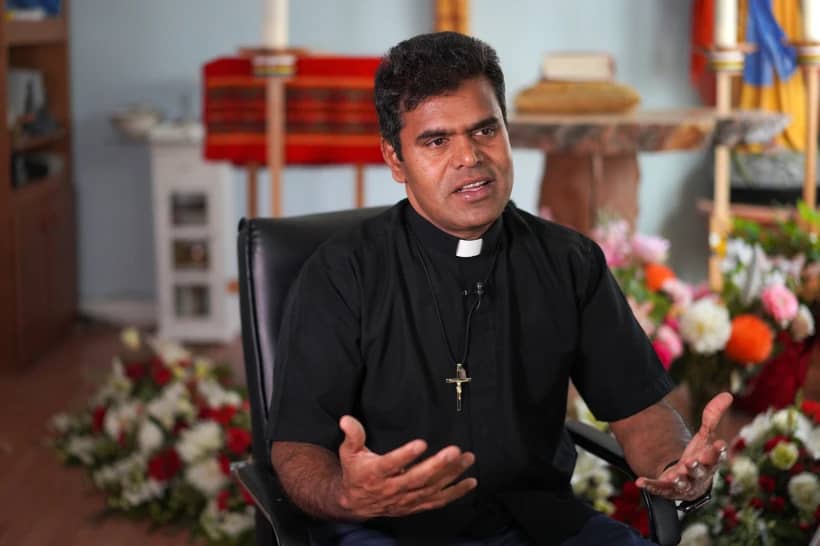Less than 13 percent of the total garbage produced in Port-au-Prince is currently collected by the metropolitan solid waste disposal service. Streets and public areas in the whole region around the capital of Haiti are permanently flooded with trash.
The situation greatly affected Brazilian-born Capuchin Father Aldir Crocoli since he arrived in the Caribbean country as a missionary, at the beginning of 2017.
“I had just started to study Pope Francis’s encyclical Laudato Si’ with a group of Franciscan brothers. I immediately thought that I should do something about all that garbage,” he told Crux.
During a vacation in Brazil, he learned about a recycling machine that transformed plastic residues into construction bricks.
“I realized that a recycling program would be a good solution for Port-au-Prince’s garbage. Shortly after that I presented the idea to the Franciscan family in Haiti and in May of 2018 we already had set up a project,” Crocoli said.
The priest’s idea is to collect at least 2,600 pounds of plastic material every day. A team of up to 100 people will receive bags to gather the garbage on the street, which will be taken to a storage center two times a week.
Eight adapted tricycles and a truck will help to assemble the residues and take them to the recycling plant, where they will be shredded and combined with additives to form not bricks, but roof tiles.
“We wouldn’t be able to commercially compete with the bricks sold in the local market in terms of price – and that’s important, because the project has to fund itself in order to be sustainable,” Crocoli said.
The priest explained that many houses in Port-au-Prince have a zinc roof, which makes them too warm. Metallic materials, he continued, are not a durable solution near the coast, since they’re not corrosion resistant.
“There’s no manufacturing of fiber cement or ceramic tiles here. Plastic tiles have the advantage of reducing the heat inside the house by 40 percent, and have great durability,” he added.
He also said no chemicals will be added to the plastic, only minerals.
Crocoli visited different factories in Brazil to select the best machine for the project. He and his colleagues spent an entire year trying to get a place to set it up without any money to fund it. At the same time, they presented the project to several potential funding agencies.
“In mid-2019, we finally managed to lease an area from the Haitian bishops’ conference, and the Italian episcopate funded the machines,” Crocoli said.
Although everything seemed to be working for the Capuchins at the beginning of 2020, the initiative hasn’t been launched yet. The COVID-19 pandemic has impacted in different ways.
The machines got stuck at the port for months and the international agencies which would fund the other elements of the plan, such as the truck and the tricycles, had to redirect their money to assist the victims of the pandemic.
“We’ve been forced to halt the implementation and look for new funds,” Crocoli said.
But Father Justin Philippe, who’s also working on the project, is confident that it will eventually become a reality.
“It has numerous benefits. It will help many people who are unemployed now and it will help to clean up the city, which is currently a sea of plastic,” he told Crux.
According to Philippe, the Church has a role to play when it comes to enhance the people’s ecological awareness.
“We’ve been mistreating our common home. It’s about time to get conscious about it and change the way we do things,” he said.
Crocoli’s project includes an effort to educate and raise awareness on recycling among school children. Materials have been prepared to teach the students about the recycling process, including videos about the plant and the machines.
“We established an agreement with eight local schools. Students will bring plastic garbage from their homes to the school. We’ll collect it and pay the schools for the material,” he said. “Something similar will be done in parishes and among religious congregations and communities,” Philippe added.













